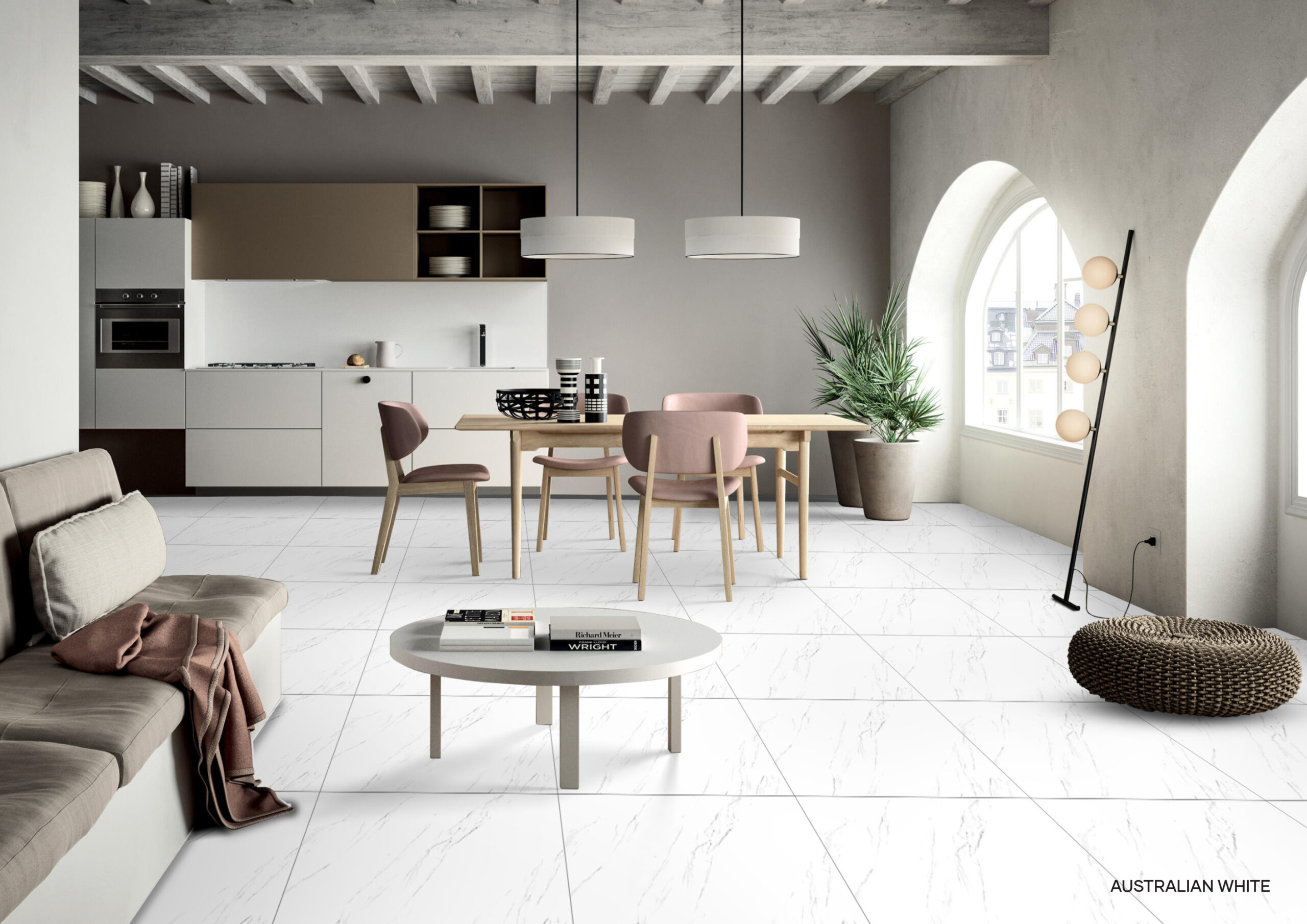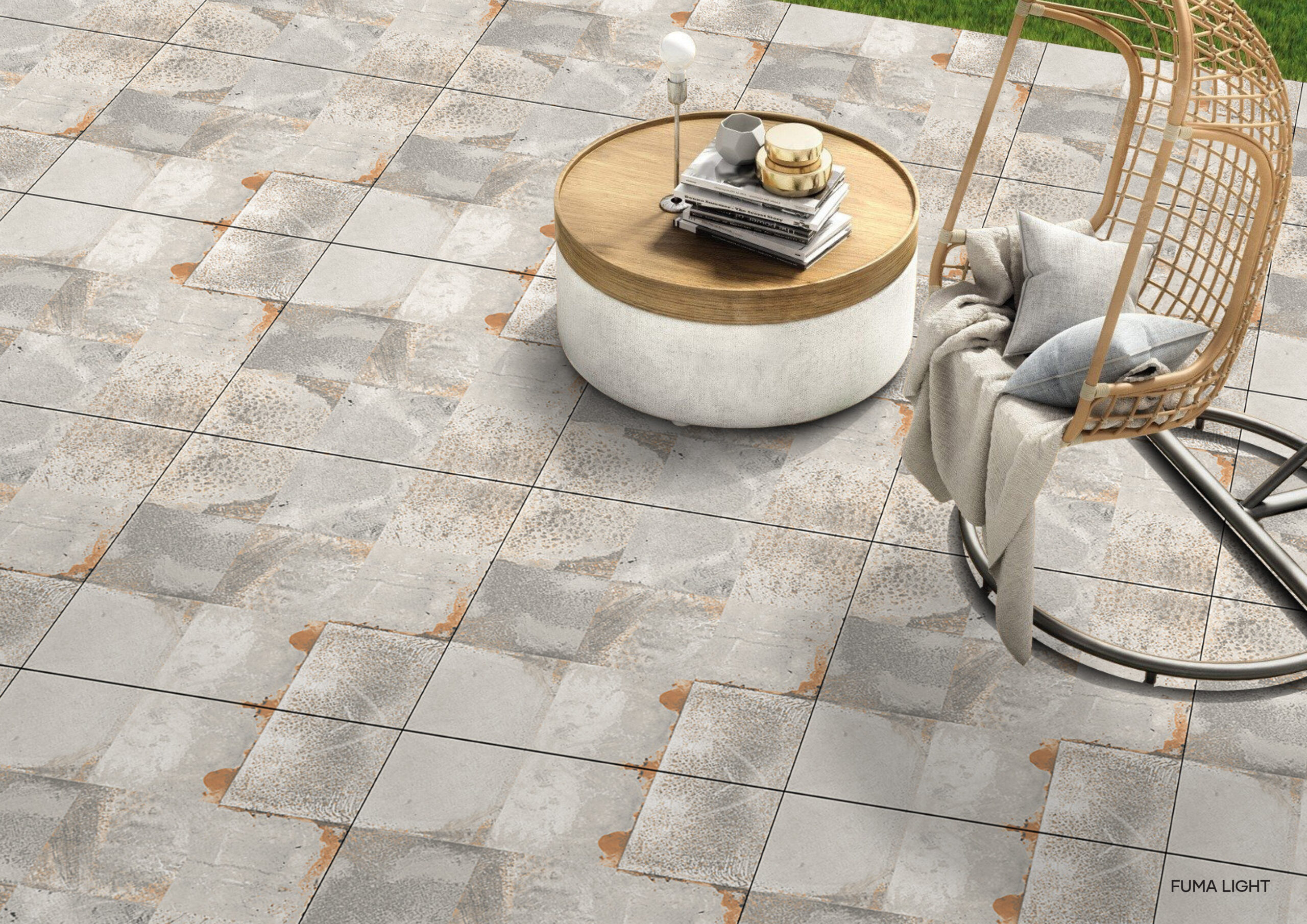
Choosing the right flooring is essential for both style and functionality. If you’re considering an upgrade, glazed porcelain tiles offer a perfect balance of durability, beauty, and low maintenance. Ideal for kitchens, bathrooms, and high-traffic areas, these tiles are gaining popularity among homeowners and designers alike.
In this guide, we explore the benefits and drawbacks of glazed porcelain tiles to help you make an informed decision for your next home renovation project.
 Key Benefits of Glazed Porcelain Tiles
Key Benefits of Glazed Porcelain Tiles
1. Low Maintenance & Easy to Clean
These tiles are stain-resistant and easy to clean, making them ideal for kitchens, bathrooms, and living rooms. A quick wipe with a damp cloth or mop keeps them looking new.
2. Exceptional Durability
Porcelain tiles are fired at high temperatures, resulting in a hard, dense surface that resists scratches and wear—perfect for high-traffic areas.
3. Moisture Resistance
The non-porous surface of glazed porcelain tiles makes them ideal for moisture-prone areas such as bathrooms, kitchens, and laundry rooms.
4. Versatile Designs & Sizes
Available in various finishes—wood-look, marble-effect, or stone texture—these tiles fit any interior style, from modern to traditional.
5. Stain and Spill Protection
These tiles repel liquids and are resistant to food and beverage stains, making them a great choice for busy households.
6. Long-Lasting Performance
Glazed porcelain tiles provide years of reliable use, even in commercial or outdoor applications when rated for exterior use.

 Drawbacks of Glazed Porcelain Tiles
Drawbacks of Glazed Porcelain Tiles
1. Higher Initial Cost
The cost of glazed porcelain tiles can be higher due to their advanced manufacturing and installation process. However, their durability often offsets long-term maintenance expenses.
2. Complex Installation
These tiles require specialized tools and professional installation due to their density and weight. DIY projects may be challenging.
3. Slippery When Wet
Glossy surfaces can be slippery, especially in bathrooms. Choose matte or anti-slip porcelain tiles for better safety.
4. Costly Repairs
If damaged, tiles are hard to replace and may require finding the exact match. Repairs are best done by professionals.
 Should You Choose Glazed Porcelain Tiles for Your Home?
Should You Choose Glazed Porcelain Tiles for Your Home?
Glazed porcelain tiles for homes are a top-tier flooring solution. Their strength, style, and low upkeep make them perfect for nearly any room. If you’re okay with the upfront cost and installation effort, the long-term benefits are well worth it. Just be sure to select the right finish and slip rating for each area of your home.
 Explore Premium Glazed Porcelain Tiles at Armos
Explore Premium Glazed Porcelain Tiles at Armos
At Armos, we specialize in manufacturing and exporting premium porcelain and ceramic tiles from Morbi, India. Whether you need tiles for your kitchen, bathroom, or commercial space, our collection offers unmatched quality and design variety.

